The new Asus ProArt PA348CGV (opens in new tab) ultrawide monitor (opens in new tab) is aiming squarely at content creators. But it also has broader appeal for general productivity, plus a high-refresh twist that adds a dose of after-hours fun.
As you’d expect from an Asus ProArt monitor, the core of its appeal involves a quality 34-inch ultrawide IPS panel with broad color coverage including 98 percent of the DCI-P3 digital cinema gamut. Arguably less expected is the 120Hz refresh rate. High refresh rates are not strictly high priority for content creation or other productivity tasks. But it’s still a welcome feature in terms of overall responsiveness and giving this screen a bit more usability bandwidth.
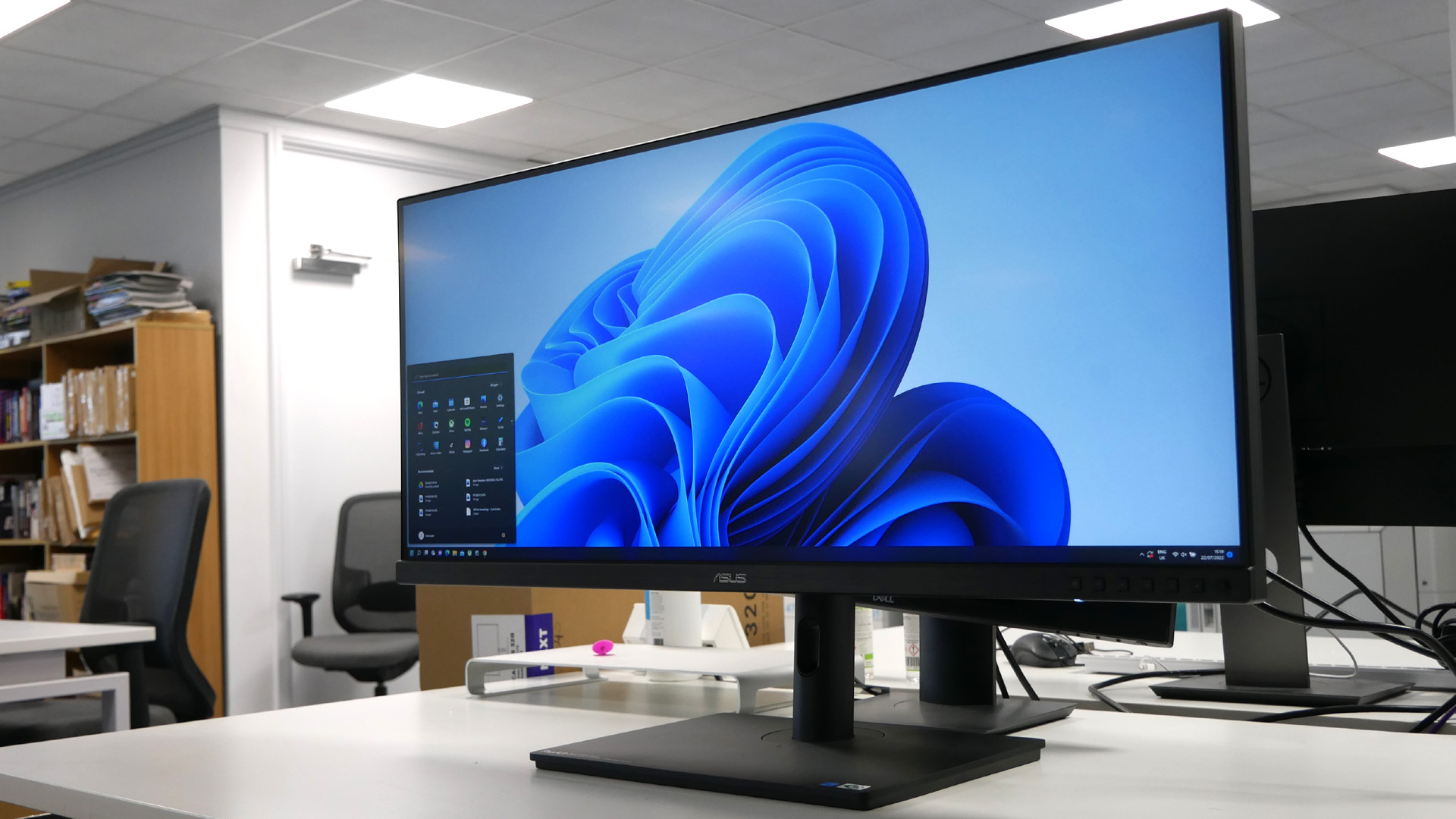
Of course, as with any ultrawide panel, there are obvious productivity upsides from the form factor. A wider panel can be great for viewing application tools like video editing timelines, as well as being a boon for multi-tasking in general. However, what the Asus ProArt PA348CGV doesn’t deliver is really high pixel density. The 3,440 by 1,440 pixel native resolution makes for a pretty big pixel pitch.
You also don’t get true HDR capability, though HDR signal processing is supported. Connectivity is another strong point, with USB Type-C in the mix, and the ergonomics look good with both a bundled stand and a desk clamp. All told, the feature set looks very promising, albeit with a few fairly obvious limitations. As for pricing, at $689 in the US or around £650 in the UK, this isn’t exactly a cheap option given the relatively modest 1440p-class resolution. But considering the excellent color accuracy, it could still be decent value depending on your workflows.
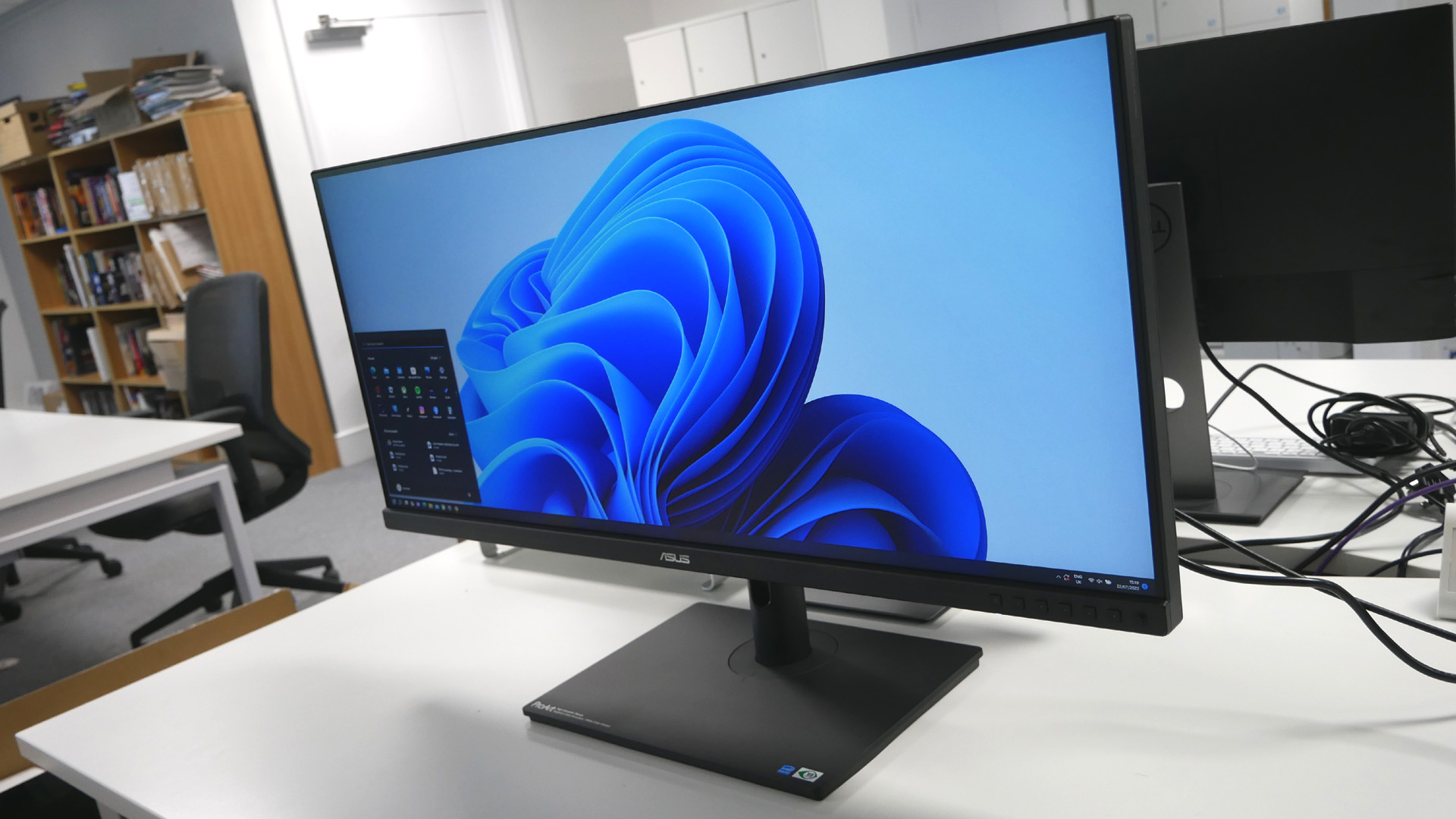
Asus ProArt PA348CGV: Design and features
- Great build quality
- Strong feature set
- Excellent ergonomics and connectivity
In characteristic Asus ProArt fashion, the Asus ProArt PA348CGV is a fine physical specimen. It’s beautifully built, looks expensive and the stand is very nicely engineered. Strictly speaking, it lacks support for rotating into portrait mode. But 100x100mm VESA mounts are supported, so you have the option of adding that capability.
Unusually, Asus also bundles a clamp which can be fitted to the bottom of the stand and allows the monitor to be firmly attached to a desk. It’s arguably a feature with niche appeal, and it lacks a so-called ergo arm and thus requires the screen be mounted centrally on a desk rather than to one side. But it could come in handy depending on your particular needs. The stand also supports tilt, height and swivel adjustments.
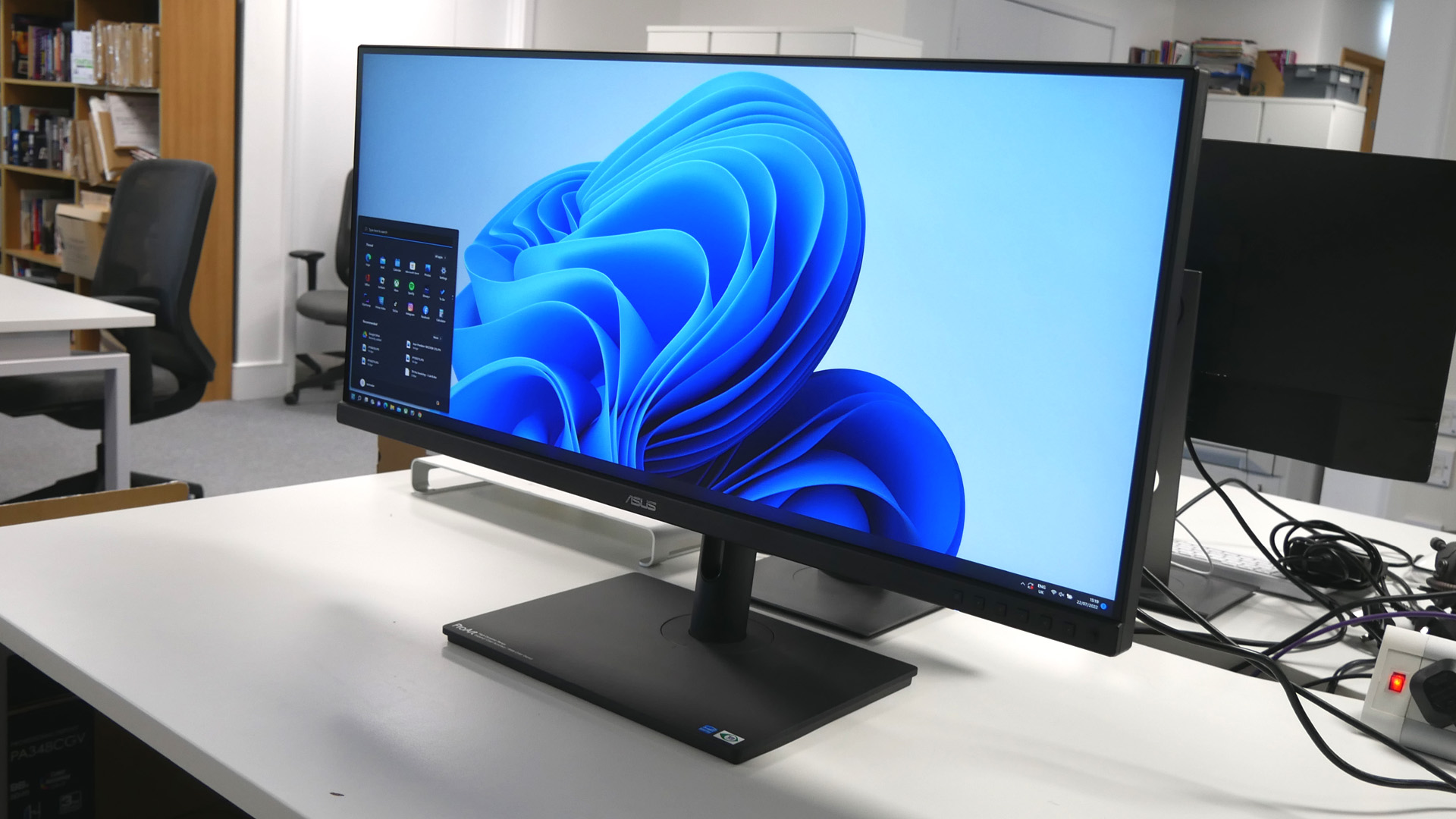
Specifications
Panel size 34-inch
Panel type IPS
Resolution 3,440 x 1,440
Brightness 400cd/m2
Contrast 1,000:1
Pixel response 2ms
Color coverage 100% Adobe RGB, 98% DCI-P3
Refresh rate 120Hz
Vesa 100mm x 100mm
Inputs DisplayPort 1.4, HDMI 2.0 x2, USB-C with 90W power delivery
Connectivity-wise, you get DisplayPort 1.4, a pair of HDMI 2.0 ports and a USB-C interface, complete with 90W of power delivery, plus a USB hub. The latter means you can connect a laptop (opens in new tab) with a single cable, charge the laptop and connect peripherals like mouse, keyboard and external storage (opens in new tab) and card readers. Once you’ve gone USB-C you absolutely won’t want to go back to that rats nest of cables and connectors. It makes life with a laptop so much slicker and easier.
Along with the 120Hz refresh, the panel also supports variable refresh and comes factory calibrated with Calman Verified sub-2 Delta Es, ensuring excellent accuracy. The display is also VESA DisplayHDR 400 certified. However, that’s a very basic level of HDR support. There’s no local dimming and the peak brightness is 400 nits, so expectations in that area should be kept in check.
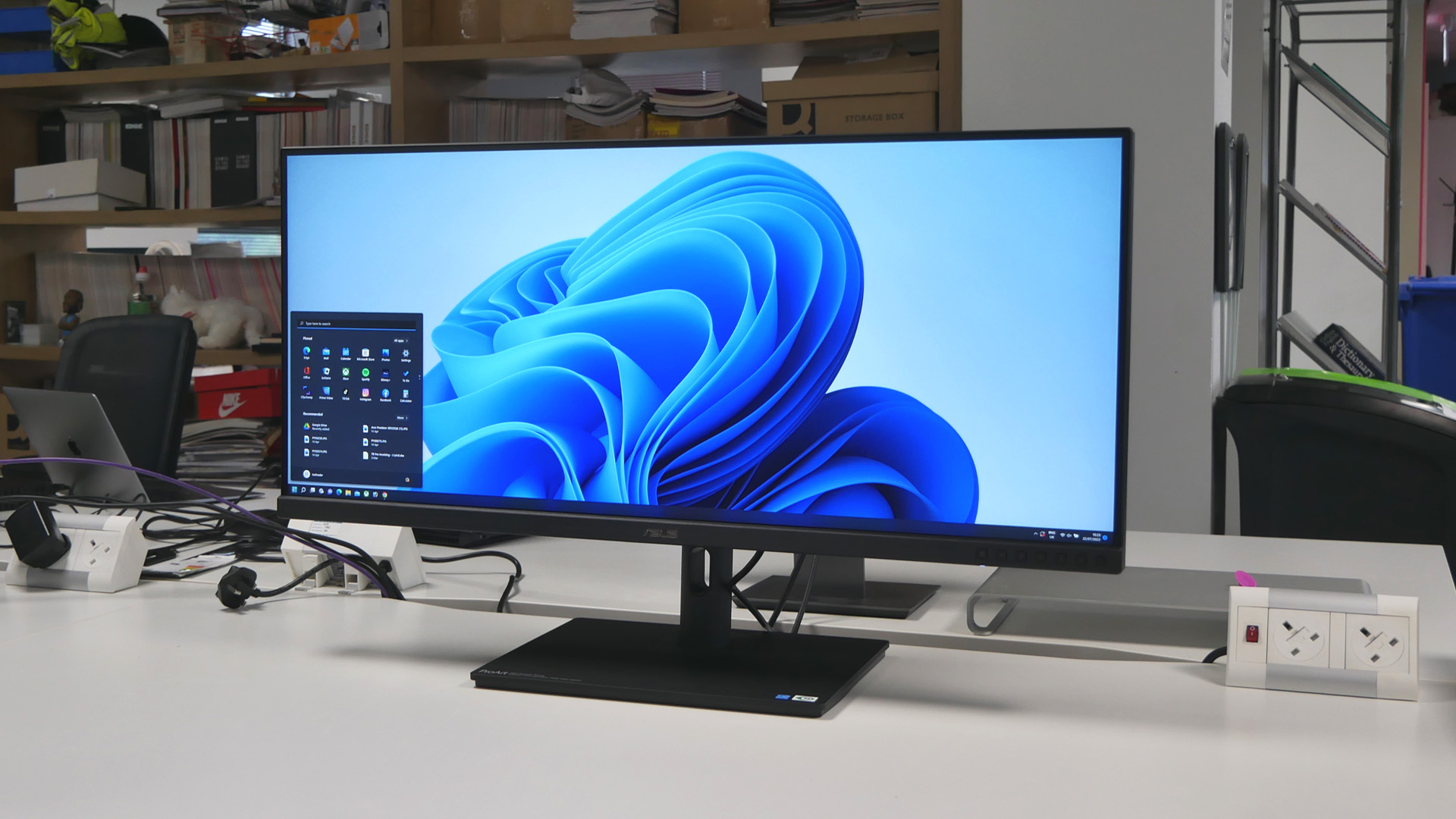
Asus ProArt PA348CGV: Performance
- Good factory calibration
- Really nice color balance and accuracy
- Not a true HDR panel
- Relatively low pixel density
As a monitor majoring on productivity, the Asus ProArt PA348CGV has all the on-paper attributes you could ask for. There’s 100 percent Adobe RGB coverage, 98 percent of DCI-P3, and and the aforementioned Calman Verified sub-2 Delta E factory calibration. The rest of the specs are predictable for a latter day monitor based on IPS tech, including 1,000:1 contrast and 2ms response times.
Out of the box, initial impressions are of a very nicely set up panel, with punchy, accurate colors, but without any over-saturated theatrics. Test images reveal no compression and gradients are super smooth, just as you would expect from what is a 10-bit panel.
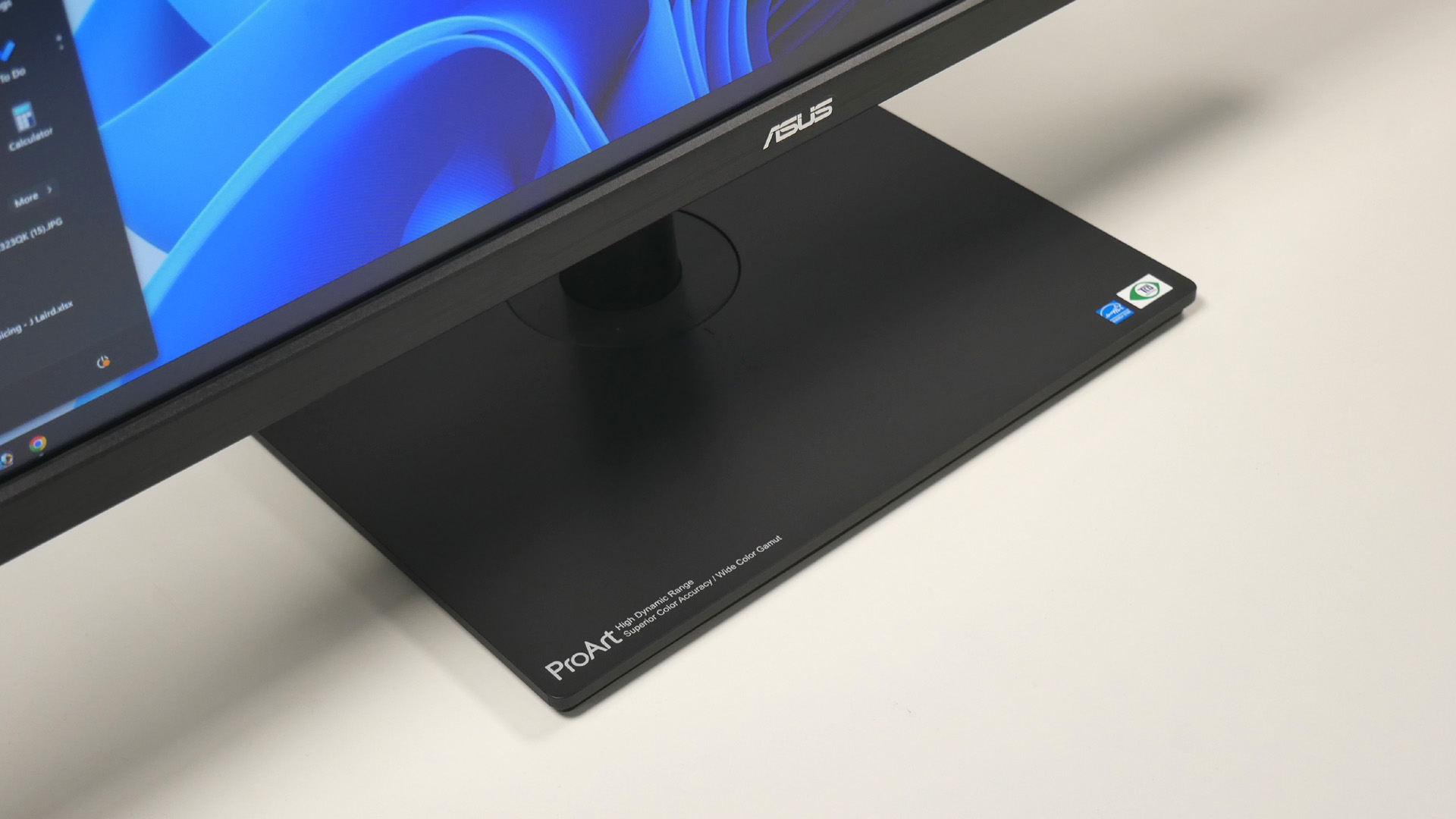
It’s worth noting that if you choose one of the preset gamuts, such as sRGB, you cannot adjust the brightness, which may or may not be an issue depending on your workflows and the light levels in your working environment.
Less impressive, predictably, is the HDR performance. Without any local dimming and with that relatively modest 1,000:1 panel contrast ratio, this is not a monitor that’s capable of true high dynamic range. Still, the Asus ProArt PA348CGV supports HDR content and will process an HDR10 signal, so it can be used for HDR workflows in a pinch.
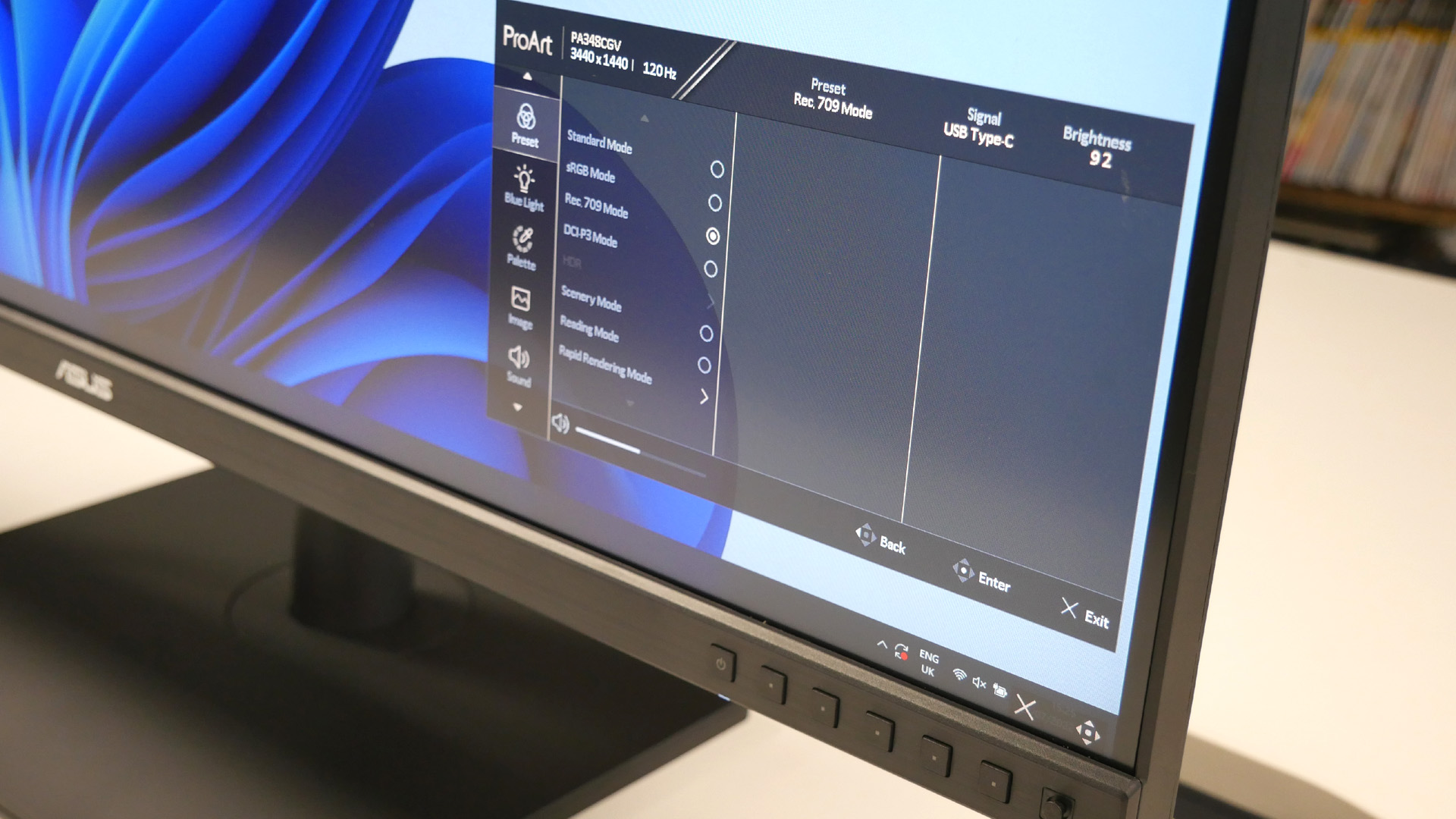
More broadly, the panel size and shape is super for multi-tasking and also fantastic for some application tools such as video production (opens in new tab) timelines. The only slight snag is the relatively low pixel density of 110DPI. If you like crisp fonts and really detailed visuals, you’d be better off with a 27-inch or 32-inch 4K monitor.
As for the 120Hz refresh, while it isn’t a direct benefit to most workflows, it certainly makes everything feel slicker, smoother and more responsive. If you do want to do a little gaming on the side, then the high refresh and 2ms response certainly makes for a great experience. It’s a much more viable option for use both as a productivity (opens in new tab) workhorse and a gaming panel than just about any other pro monitor we can think of.
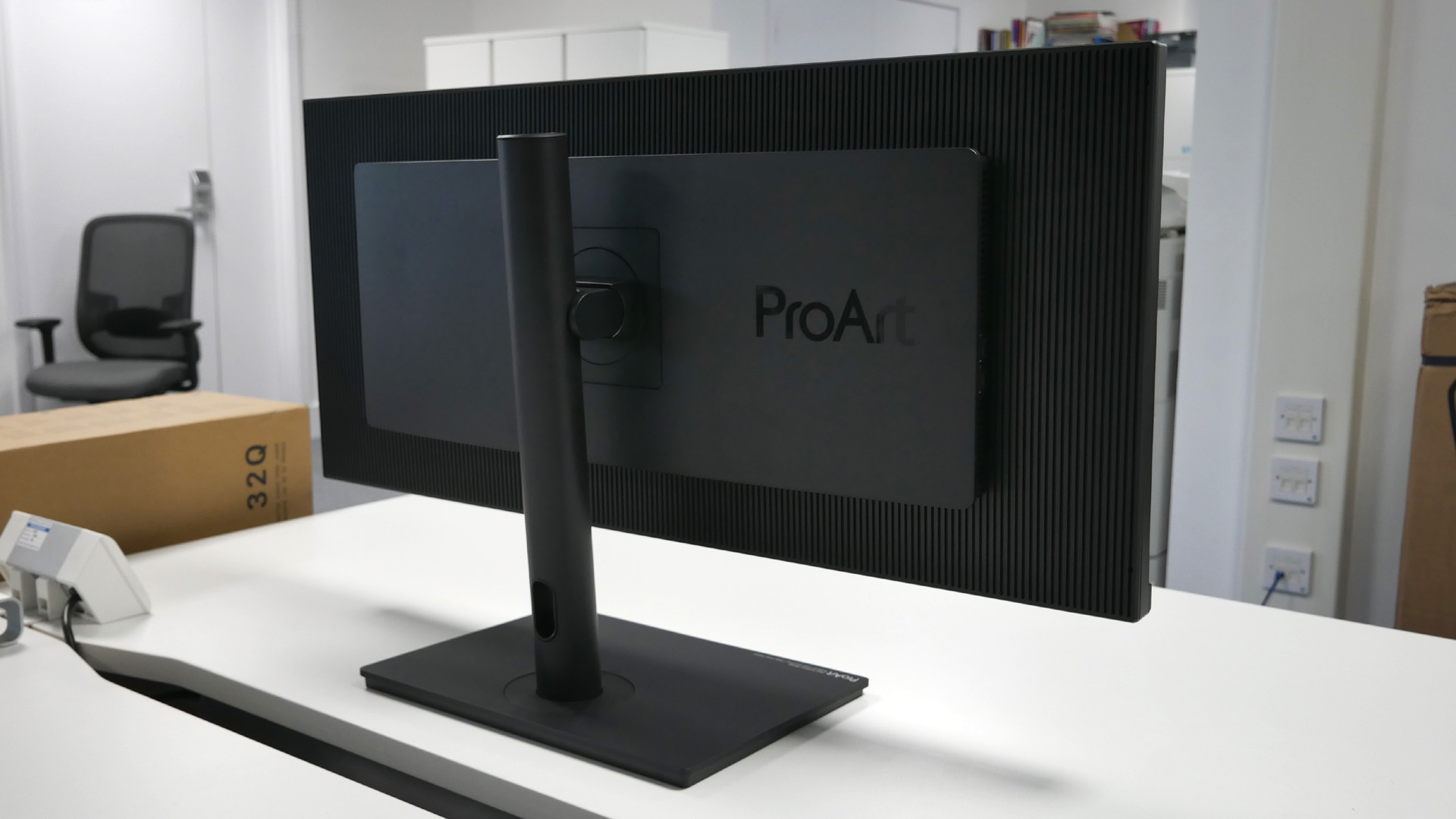
Asus ProArt PA348CGV: Verdict
There aren’t many 34-inch ultra wide panels aimed squarely at productivity in the general and content creation in particular. So, the Asus ProArt PA348CGV is a welcome addition to the market. It’s nicely calibrated, has a strong feature set including USB-C with 90W power delivery and is beautifully built. Add in 120Hz refresh and 2ms response times and you have a monitor that can turn its hand to just about everything from content creation to gaming.
It’s not perfect, of course. With no local dimming, the HDR experience is underwhelming. The pixel density of 110DPI doesn’t deliver terribly crisp fonts or really sharp image detail, either. But then it’s a case of trading off the mutli-tasking benefits of the ultrawide aspect against the tighter pixel pitch of a more conventional 4K panel. You pays your money and you takes your choice.




